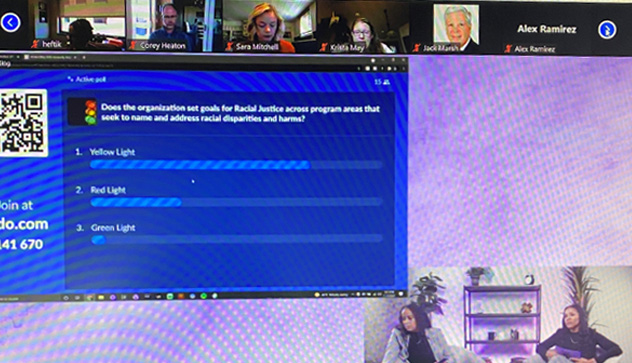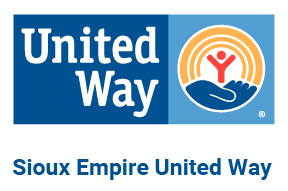 “Let’s start with History for 100 points to get the competition rolling.” With 24 members of our Board of Directors and United Way staff quick to tap in with the answer, an interactive and educational two-hour Diversity, Equity, and Inclusion training session began. The question, a true or false, “The term ‘race’ was used infrequently before the 1500s. When it was used, it was used to identify groups of people with a kinship or group connection.” The fastest team to respond “true” added 100 points to their total to start the game.
“Let’s start with History for 100 points to get the competition rolling.” With 24 members of our Board of Directors and United Way staff quick to tap in with the answer, an interactive and educational two-hour Diversity, Equity, and Inclusion training session began. The question, a true or false, “The term ‘race’ was used infrequently before the 1500s. When it was used, it was used to identify groups of people with a kinship or group connection.” The fastest team to respond “true” added 100 points to their total to start the game.
What took place over the next two hours, carefully facilitated by Clements and Johnson Consulting, was part competition, part DEI 101, and part reflection on individual members’ knowledge of our community’s diversity, as well as our organization’s work in DEI.
“Recognizing that the members of our Board come from diverse backgrounds, employment, and levels of DEI knowledge was crucial in this initial training,” said Diversity, Equity, and Inclusion Committee Chair, Brenda Kibbe. “This session was a great opportunity to remind our governing board of the importance of the work of United Way in leading DEI in our community and the services we fund.”
The questions and discussion covered history, demographics, definitions, self-care, words matter, and action steps. Participants discussed:
- The origination of the American value of rugged individualism (pulling yourself up by your bootstraps). The median household income for people with a disability is $20,623.
- The fastest growing racial group in Sioux Falls is the Black community.
- Neurodiversity is the concept that aims to reduce stigma around learning and thinking differences.
- Microaggression is an indirect, subtle, or unintentional discrimination against members of a marginalized group.
- Potential funding barriers for smaller organizations, especially led by people of color, women, and other historically disadvantaged groups, could include unnecessarily high financial reporting requirements.
Though the competition was tight, with more than one Board member noting they were lacking in speed in their responses, knowledge was gained throughout the training session. “I entered the training session not sure I’d learn anything, but quickly gained new information,” noted one Board member. “The local demographics we covered really put things in perspective for me,” noted another Board member.
